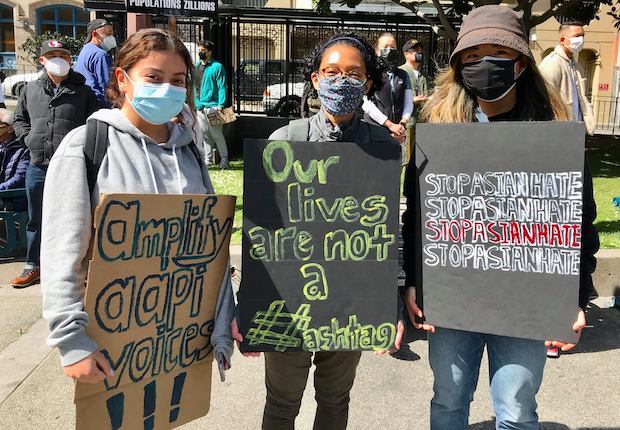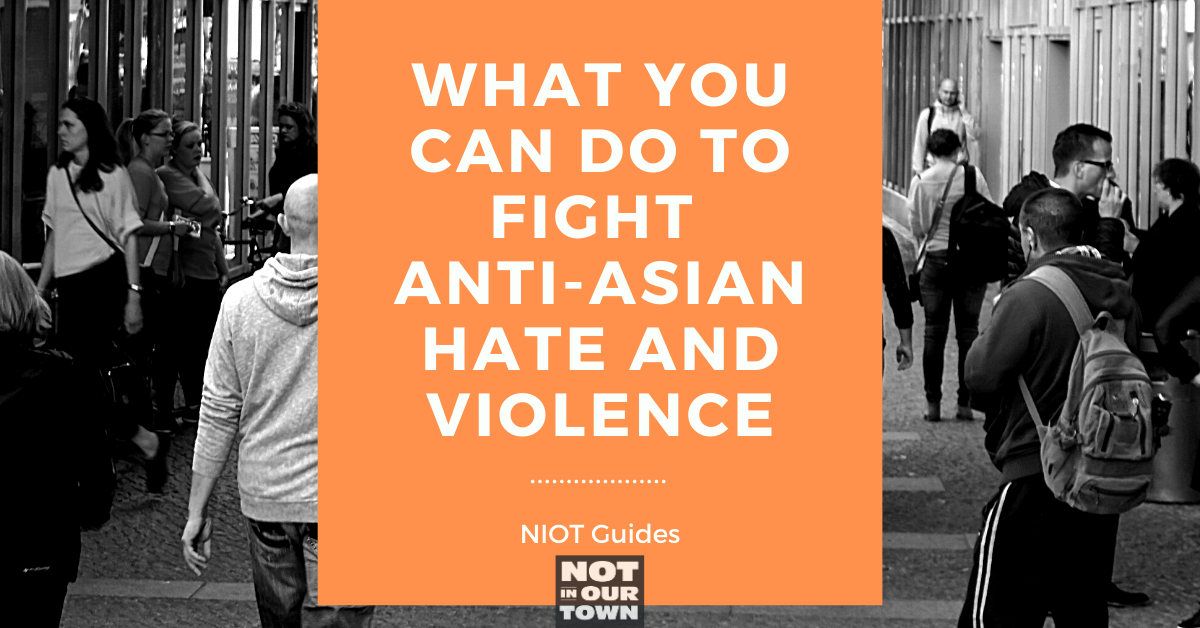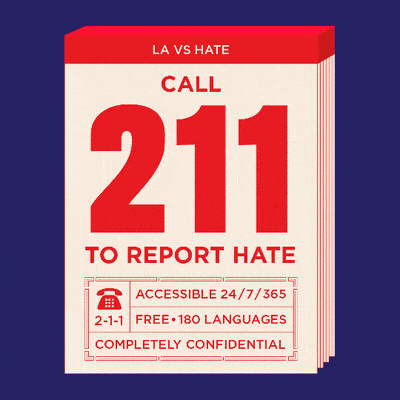 |
|
Amplify AAPI Voices!!! San Francisco Rally to Stop AAPI Hate (Credit: Eddie Wong, Facebook)
|
The rise of anti-Asian hate incidents and violence since the beginning of the pandemic is spreading trauma and fear across our country. Racism targeting Asians has an ugly, painful history in the U.S., and the current manifestation has created a crisis of safety and security. This eruption of racism is not an “Asian problem” but a call to action for EVERYONE.
On March 16, eight people were killed in by a gunman in the Atlanta-Metro area. Six of the victims were of Asian descent, and two were white. Seven were women. The authorities have identified those killed in the attacks as Soon Chung Park, 74; Hyun Jung Grant, 51; Suncha Kim, 69; Yong Ae Yue, 63; Delaina Ashley Yaun, 33; Xiaojie Tan, 49; Daoyou Feng, 44; and Paul Andre Michels, 54. Elcias R. Hernandez-Ortiz, 30, was seriously injured. Learn more about the victims.
Atlanta is not the only site of deadly violence targeting Asians. In the Bay Area of California alone, two Asian elders were murdered in the past two months. Across the country, Asian-Americans were targeted in nearly 3,800 hate incidents in the past year.
Below, we offer ideas and suggestions for individuals, local NIOT groups and elected officials to put into action in your communities. Elected officials are powerful messengers to defuse tensions and risks of violence, set positive behavioral expectations decrying violence, and reaffirm the community’s confidence in and commitment to democratic processes.
 |
|
|
Actions for Individuals
The mission of Not In Our Town begins with individuals joining forces to stop hate in their communities. Here are ten ways you can get involved:
♦ Check in with your Asian American neighbors and friends. Many people are afraid to go outside given the recent violence. Reach out to your neighbors, particularly elderly Asian Americans and ask them what you can do to support them. A quick run to the grocery store for a neighbor could not only help them to get what they need, but also reassure them that the are a part of the community and people are concerned. And support AAPI businesses in your town financially by shopping in your respective Chinatown/International Districts.
♦ Raise your voice in solidarity. Take the NIOT pledge and share it on social media! The Pledge is a reminder to speak up — when you see someone being bullied or harassed; when you hear a bigoted comment or “joke"; or when you see cruel messages on social media. Ask others in your community, school or workplace to take the pledge, too. Print off copies of the pledge, and begin to spread this important message in your community today.
♦ Make your support visible to your community. Share and reshare social media posts on your personal feed. Frame your Facebook photo to support "Stop AAPI Hate." You can also show your support by displaying a poster or banner you make in your window. Include the hashtag, #StopAAPIHate. For examples, visit: LAvsHate and IAmNotAVirus. Other ideas include painting a river rock with messages of love and support, and leaving them in parks and around the neighborhood. Organize parents and children in the neighborhood to create chalk art together in support of AAPI neighbors around the block.
♦ Speak out if you witness a hate crime or incident. Stop AAPI Hate has tips for both those experiencing hate and those witnessing it, such as prioritizing safety first and trying to stay calm, and a tool for reporting hate crimes online. KQED, San Francisco's public television website, offers helpful advice for documenting incidents. Get Creative: A Korean American woman living in Los Angeles went so far as to create hate crime booklets for Asian-American seniors to prepare them in case they are racially targeted. Available in six languages, the booklets offer instructions for people living in LA, NYC and San Francisco/Oakland.
♦ Encourage victims of hate crimes to report attacks. If you or someone you know has been the target of a hate crime, here are some tips on supporting them emotionally. Encourage them to report the crime to local police and the FBI. The FBI has translated their guide into various languages to help with the process. Asian Americans Advancing Justice - AAJC also has a tool for reporting hate incidents. You can also report a hate incident at Stop AAPI Hate. The Communities Against Hate initiative offers a hotline (1-844-9-NO-HATE) to speak with someone who will connect you with the resources and services that meet your needs, such as legal services, medical and mental health services, and other survivor assistance resources.
♦ Take an online Bystander Training Intervention course. Hollaback! has partnered with Asian Americans Advancing Justice – AAJC to host bystander intervention trainings so people can learn how to stop anti-Asian and xenophobic harassment when they see it. It only takes an hour.
♦ Reach out to your elected officials and advocate for awareness in your workplace. Email or call your local officials and ask them about hate crimes in your community and how data on them is being collected and shared. Express your concern and support for AAPI people in your town or city and tell the elected officials that you want them to make fighting hate a priority. The National Asian Pacific American Women's Forum (NAPAWF), has put together a petition that asks elected officials to center the needs of affected communities, tackle systemic racism and to address the needs of survivors.
♦ Support the immediate needs of AAPI groups on the ground in Georgia. Sign the Asian Americans Advancing Justice - Atlanta community statement that advocates for a community-centered response to the hate and violence calling on all of us to build just communities, where we are all safe, where all workers are treated with dignity and respect, and where all our loved ones thrive. You can also donate to the Atlanta victims and their families. The Asian American Resource Center in Georgia is also fundraising to help the victims’ families with funeral and arrangement costs. Access information on solidarity vigils, statements, policy asks for the White House, and local groups in Atlanta on this webpage developed by the Asian American Leaders Table on COVID-related Hate. Please use for your own solidarity work around anti-Asian hate.
♦ Support national and local AAPI groups financially or by retweeting, reposting and sharing their communications. Here are 9 groups fighting for Asian Americans that you can support right now. But find out what groups are active in your region, city or town and follow them on social media and Facebook so you can stay connected and amplify their calls for action. Get involved!
♦ Learn about the history of Asian Americans and the discrimination they have faced, particularly in your town or region. Check out Eddie Wong's NIOT blog post in which he reflects on the long history of anti-Asian discrimination in America. Wong is the former executive director of NAATA/Center for Asian American Media and current editor of Eastwind Zine. Vox has put together a reading list of books from authors and experts in Asian American history. There's also this list of movies that might be useful for Zoom screenings and community discussions. One great film to screen is "Who Killed Vincent Chin?," a 1989 oscar-nominated documentary by Christine Choy and Renee Tajima-Peña, and PBS is now streaming for free its landmark five-hour docu-series, Asian Americans, released last year.
Actions for Community Groups
Ways that you can reach out to neighbors and support them. Here are five things that you can do:
♦ Check in with your Asian American partners, neighbors and businesses. Many people are afraid to go outside given the recent violence. Reach out to your neighbors, particularly elderly Asian Americans and ask them what you can do to support them. Visit Asian-owned businesses and ask how they are doing, ask whether they feel safe and if there's anything the community can do to help them. Share their concerns with local elected officials and law enforcement. Tell them that they have your full support. Some nonprofit groups and volunteers have organized foot patrols in partnership with local police departments to lend support to Asian businesses and report incidents. Check out Compassion Oakland's website for more details.
♦ Issue a press release or statement of solidarity. Here's an example of a statement Not In Our Town signed on to earlier in the pandemic. Local NIOT groups, including NIOT—Novato, are issuing statements of their own, tailored for their communities. Here's a sample statement drafted by NIOT—Novato and Not In Our Town that you an use as a starting point for your own statement. Be FOR something not just against something. Promote positive actions, using examples to set behavioral expectations in your community, and reaffirm the values that your community stands for. Access information on solidarity vigils, statements, policy asks for the White House, and local groups in Atlanta on this webpage developed by the Asian American Leaders Table on COVID-related Hate. Please use for your own solidarity work around anti-Asian hate.
♦ Organize a community discussion led by AAPI members of your NIOT group and community. What are AAPI people facing in your community? Learn about specific communities in your town; the Asian diaspora includes many nationalities, histories and cultures. (Learn more about the demographics in your state using US Census data. You can visualize the racial makeup of your region on this cool map.) Assemble a panel of AAPI leaders, including elected officials, local police and faith leaders to learn how the community can support AAPI people in your town. Discuss how you might together work to build an anti-racist, inclusive community where everyone feels safe.
♦ Reach out to your elected officials and advocate for awareness in your workplace. Email or call your local officials and ask them about hate crimes in your community and how data on them is being collected and shared. Express your concern and support for AAPI people in your town or city and tell the elected officials that you want them to make fighting hate a priority. The National Asian Pacific American Women's Forum (NAPAWF), has put together a petition that asks elected officials to center the needs of affected communities, tackle systemic racism and to address the needs of survivors. Ask your police department to create an online hate incident reporting form (like this one offered in Orange County, CA) or create a Hate Crime Hotline (or text line like this one in LA).
♦ Learn about Asian American history, particularly in your town or region. Vox has put together a reading list of books from authors and experts in Asian American history. Here's a list of movies that might be useful for Zoom screenings and community discussions. One great film to screen is "Who Killed Vincent Chin?," a 1989 oscar-nominated documentary by Christine Choy and Renee Tajima-Peña, and PBS has a landmark five-hour docu-series, Asian Americans, released last year. Follow Asian-American journalists and publications to learn more about their reality and perspectives.
Actions for Elected Officials
Ways that you can be a leader in supporting AAPI members of your community. Here are six things that you can do:
♦ Check in with AAPI leaders, organizations, faith groups and businesses. Tell them that they have your full support and listen to what they have to say. Work together with law enforcement to make sure that everyone feels safe. Some nonprofit groups and volunteers have organized foot patrols in partnership with local police departments to lend support to Asian businesses and report incidents.
♦ Make it easier for those who have been targeted to report hate incidents. Ask your police department to create an online hate incident reporting form (like this one offered in Orange County, CA) or create a Hate Crime Hotline (or text line like this one in LA), or for those afraid to contact police, encourage citizens to make a report at Stop AAPI Hate.
♦ Issue an official press release or statement of solidarity. Here's a sample statement drafted by NIOT—Novato and Not In Our Town that you an use as a starting point for your own statement. Be FOR something not just against something. Promote positive actions, using examples to set behavioral expectations in your community, and reaffirm the values that your local government and community stands for.
 |
♦ Create a social media campaign. Our partner LA vs. Hate launched their incredible community centered, artist driven social media campaign in 2020. Led by the Human Relations Commission, the LA vs. Hate Campaign partners with community partners from every district of the county representing a diverse coalition of voices committed to ending hate. They commissioned artists to create share graphics and encourage Angelinos to share this free artwork across social media, text and email in the effort to recognize, report and resist hate. New York City has just launched an Anti-Asian Bias, Discrimination, and Hate Campaign with a new video featuring First Lady Chirlane McCray and Asian New Yorkers speaking out against anti-Asian hate, available in English with subtitles in nine languages. It's "I Still Believe in Our City" social media graphic campaign also encourages New Yorkers to share graphics available for free on the city's website.
♦ Support national and local AAPI groups financially or by retweeting, reposting and sharing their communications. Here are 9 groups fighting for Asian Americans that you can support right now. But find out what groups are active in your region, city or town and follow them on social media and Facebook so you can stay connected and amplify their calls for action. Get involved!
♦ Learn about Asian American history, particularly in your region and state. Vox has put together a reading list of books from authors and experts in Asian American history. Here's a list of movies that might be useful for Zoom screenings and community discussions. One great film to screen is "Who Killed Vincent Chin?," a 1989 oscar-nominated documentary by Christine Choy and Renee Tajima-Peña, and PBS has a landmark five-hour docu-series, Asian Americans, released last year. Follow Asian-American journalists and publications to learn more about their reality and perspectives.
 |
|
NYC's "I Still Believe in Our City" social media campaign. Available in nine languages.
|
Add new comment